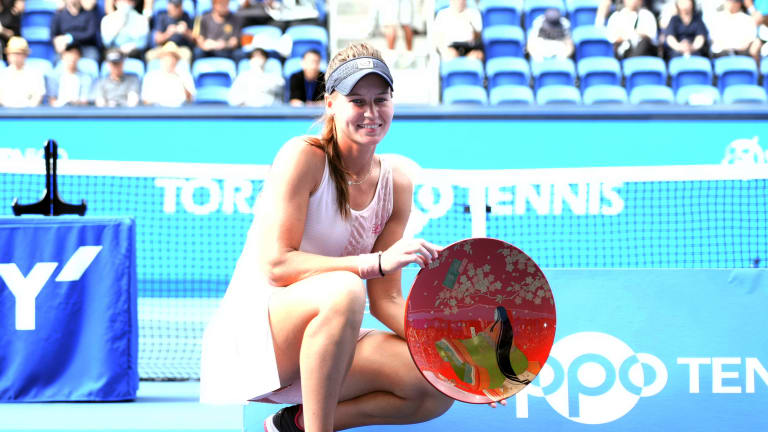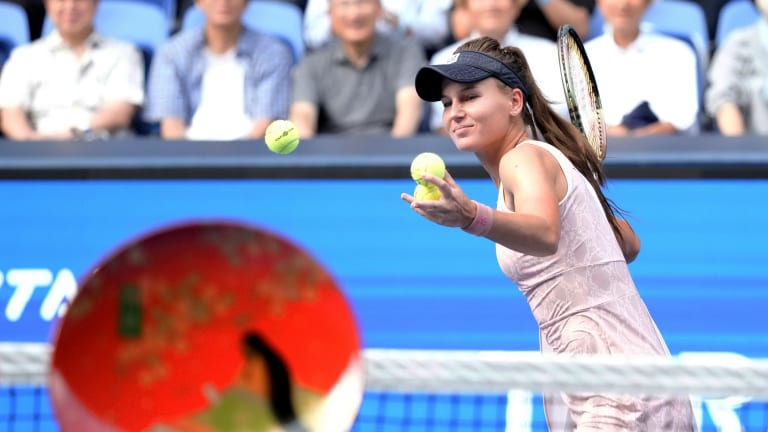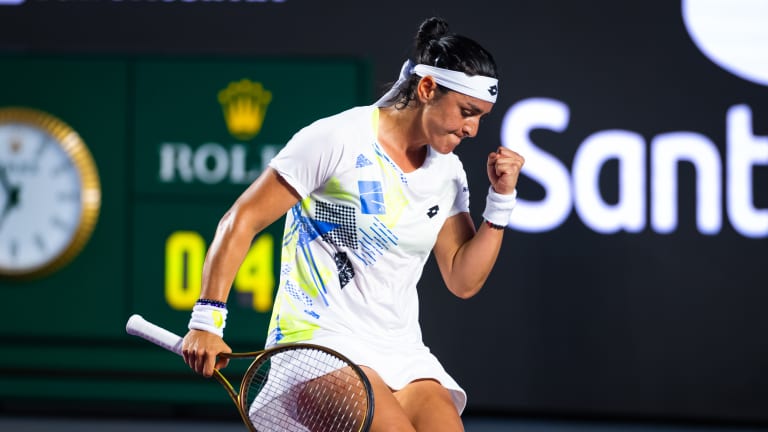Weekend Winners
Will 'little steps' this week spur Jabeur, Kudermetova on to bigger things through 2023 and beyond?
By Oct 01, 2023Weekend Winners
How Carlos Alcaraz put a 'difficult month' behind him with his first Monte Carlo title
By Apr 13, 2025Weekend Winners
With clay titles, Jenson Brooksby and Jessica Pegula made 2025 all the more promising
By Apr 07, 2025Weekend Winners
Jessica Pegula and Emma Navarro got up after early-season stumbles to win their first titles of 2025
By Mar 03, 2025Weekend Winners
Carlos Alcaraz, Belinda Bencic or Denis Shapovalov: Whose title run could be the most significant for 2025?
By Feb 10, 2025Weekend Winners
Felix Auger-Aliassime—surprise, surprise—becomes the first two-title men’s champ of 2025
By Feb 02, 2025Weekend Winners
The Top 5 most important developments of a manic first week of the 2025 tennis season
By Jan 05, 2025Weekend Winners
Giovanni Mpetshi Perricard, Jack Draper show big-match poise in Basel, Vienna
By Oct 27, 2024Weekend Winners
Antwerp champion Roberto Bautista Agut represents a generation that refuses to go quietly
By Oct 20, 2024Weekend Winners
"What just happened?" Alexei Popyrin joins Jessica Pegula in making pre-US Open statement
By Aug 13, 2024Will 'little steps' this week spur Jabeur, Kudermetova on to bigger things through 2023 and beyond?
Jabeur showed off her practical side to win her first hard-court title in Ningbo while Kudermetova out-hit two Top 5 opponents for her first title since 2021, in Tokyo.
Published Oct 01, 2023
Advertising

Kudermetova captured her second career title at the WTA 500 in Tokyo.
© Getty Images
Advertising

In addition to Pegula, Kudermetova also beat Iga Swiatek (for the first time) in the quarters.
© Getty Images
Advertising
Advertising

Jabeur's win in Ningbo keeps her at No. 8 in the WTA's year-end race to Cancun.
© 2023 Robert Prange